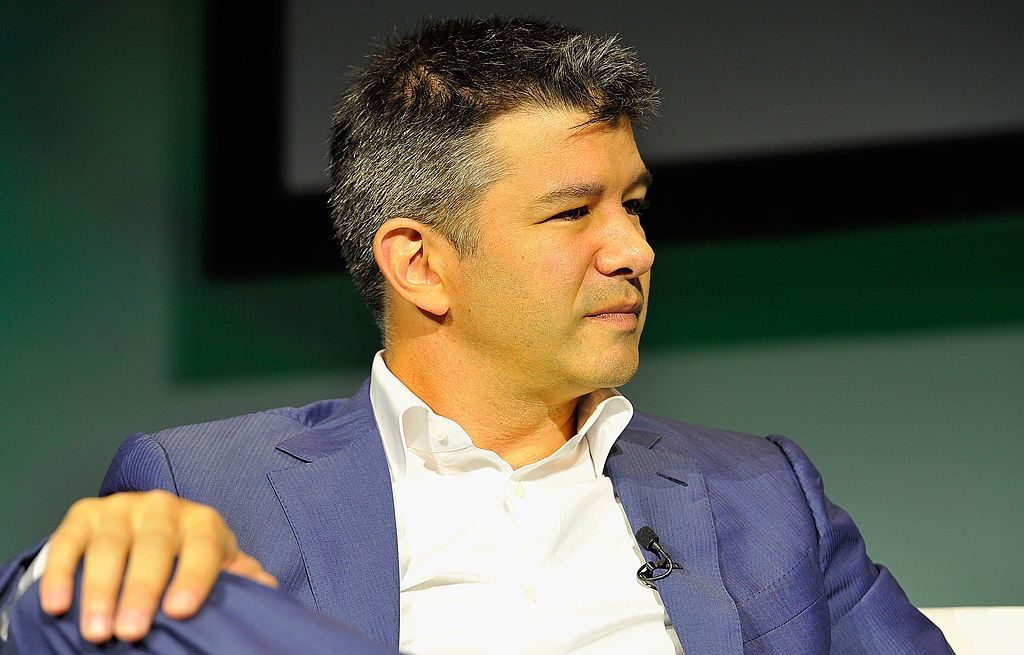 The power struggle at Uber is escalating quickly, with the company’s board proposing late last week to reduce former CEO and founder Travis Kalanick’s voting clout on the board, and Kalanick responding by filling two board seats that he controls with former Xerox CEO Ursula Burns and former Merrill Lynch CEO John Thain.
The power struggle at Uber is escalating quickly, with the company’s board proposing late last week to reduce former CEO and founder Travis Kalanick’s voting clout on the board, and Kalanick responding by filling two board seats that he controls with former Xerox CEO Ursula Burns and former Merrill Lynch CEO John Thain.
Uber and investor Goldman Sachs have made a proposal to the board that would reduce Kalanick’s voting power, while expanding the power of new CEO Dara Khosrowshahi in preparation for an initial public offering sometime in the next two years. The board is scheduled to discuss the proposal tomorrow.
While the boardroom battle is making headlines, Kalanick is acting well within the rules—at least until Uber’s board votes to change them.
“This is how extreme fighting is played in the boardroom,” Jeffrey Cunningham, professor of global leadership at Arizona State University’s Thunderbird School of Global Management told Chief Executive. “The board handed the reins to Kalanick when he was building a $60 billion giant. That is the mistake here, not his trying to hold onto power—we all like to do that. As a major shareholder with voting rights, he has every right to stack the board. That’s why they gave him these powers. Should he not use them?”
“Kalanick is probably acting like a wounded water buffalo, because he is. But I doubt his moves are not in the company’s best interests.” – Jeffrey Cunningham
The root of the matter, Cunningham says, revolves around Uber’s looming IPO, which Kalanick has delayed intentionally to grow the company further. Uber investors, however, are worried their profits may be negatively impacted if they wait any longer.
“They have in effect put a gun to the new CEO’s head—he must IPO by 2019,” Cunningham says. “What if there is a recession? They don’t really care. An investment in Uber’s early round of $10,000 is now worth $50 million.”
Though the public posturing shows Kalanick is willing to publicly flex his muscles on the board, it isn’t likely that he plans to take the ship down with him should the board move to reduce his voting power.
“Kalanick is probably acting like a wounded water buffalo, because he is,” Cunningham says. But I doubt his moves are not in the company’s best interests.”

Chief Executive Group exists to improve the performance of U.S. CEOs, senior executives and public-company directors, helping you grow your companies, build your communities and strengthen society. Learn more at chiefexecutivegroup.com.
0

1:00 - 5:00 pm
Over 70% of Executives Surveyed Agree: Many Strategic Planning Efforts Lack Systematic Approach Tips for Enhancing Your Strategic Planning Process
Executives expressed frustration with their current strategic planning process. Issues include:
Steve Rutan and Denise Harrison have put together an afternoon workshop that will provide the tools you need to address these concerns. They have worked with hundreds of executives to develop a systematic approach that will enable your team to make better decisions during strategic planning. Steve and Denise will walk you through exercises for prioritizing your lists and steps that will reset and reinvigorate your process. This will be a hands-on workshop that will enable you to think about your business as you use the tools that are being presented. If you are ready for a Strategic Planning tune-up, select this workshop in your registration form. The additional fee of $695 will be added to your total.

2:00 - 5:00 pm
Female leaders face the same issues all leaders do, but they often face additional challenges too. In this peer session, we will facilitate a discussion of best practices and how to overcome common barriers to help women leaders be more effective within and outside their organizations.
Limited space available.

10:30 - 5:00 pm
General’s Retreat at Hermitage Golf Course
Sponsored by UBS
General’s Retreat, built in 1986 with architect Gary Roger Baird, has been voted the “Best Golf Course in Nashville” and is a “must play” when visiting the Nashville, Tennessee area. With the beautiful setting along the Cumberland River, golfers of all capabilities will thoroughly enjoy the golf, scenery and hospitality.
The golf outing fee includes transportation to and from the hotel, greens/cart fees, use of practice facilities, and boxed lunch. The bus will leave the hotel at 10:30 am for a noon shotgun start and return to the hotel after the cocktail reception following the completion of the round.